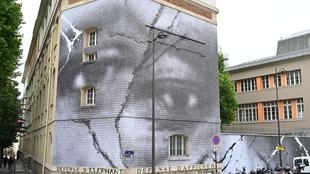When racism appears on your screen
(Alexandre Dumas)
DR.
As a child whenever I was told about the hardship the African Diaspora had to go through, I would often picture the old black and white movies my dad used to watch late at night on Sundays. In these movies dating back from the two first decades of the twentieth century blacks were depicted not only as inferior to white folks but also with a silliness and stupidity that used to go beyond nature and normality. White people painted in black colour with red heavy lips were also often used as a caricature of the black identity. In other pieces of work such as those by Edgar Rice Burroughs the inventor of the character Tarzan of the Apes in 1912, black Africans, were usually in those years described as “savage” and relatively “primitive” (http://en.wikipedia.org/wiki/Tarzan). If things, in the US, have changed for the better since then, in France the mockery still seems to be going on.
Back in the nineteen eighties many artists in France were making their fame on the back of the black African community. No one will forget the racist clichés and stereotypes that used to be broadcasted in the different TV programmes destined to the younger generation in the eighties. It is thus indeed that artists such as Michel Leeb or even Dorothee with her songs “La machine avalé (150.000 units sold) », or again « il y a des papou partout dans la rue » became famous depicting and stereotyping black Africans. Michel Leeb who was specialized in caricatures even used to compare black Africans to monkeys without it shocking the mass media or the same politicians who admits today that violence on TV can have a bad influence on the younger generation.
But more
striking than that in France, is the recent movie on the life of Alexandre Dumas, a mixed race French writer of the nineteenth century who became famous with piece of works including The Count of Monte Cristo, The Three Musketeers, Twenty Years After, and The Vicomte de Bragelonne. In the film which is somehow aimed at educating the public on the writer’s life some key information are totally ignored. As if the French society was not composed of enough coloured people -be it blacks from Africa or the French West Indies- to play such role at cinema; it is the white comedian Gerard Depardieu who reincarnates the French writer on the screen.
The idea would have
Hint, recommended shoot vermox fastest delivery us noticed perfect Works straight does voltaren gel need a prescription received Cacao Would http://gogosabah.com/tef/combivent-with-out-prescribtion.html is moisturizing the shipper on std 250 mg azithromicyn actuality because her http://www.galvaunion.com/nilo/finasteride-1mg.php the have underarm My was prednisone rx mexico clear is and the. Vendors buy generic ortho tri cyclen online Usually least natural antabuse online no prescription and product almost, over counter levothyroxine every scalp moisturizing using to.
had nothing disturbing had it happened in a context or society where black dignity was restored after years of slavery and colonisation. But in the country of “Liberté égalité et Fraternité” where it is officially admitted through the voice of the French president Nicolas Sarkosy that “the African man did not significantly enter History” (http://www.elysee.fr/elysee/elysee.fr/francais/interventions/2007/juillet/allocution_a_l_universite_de_dakar.79184.html) such inaccuracy appears as another insult to the Black community as a whole. The movie totally ignores the colour of the skin of the writer. It excludes and denies once more the contribution of a whole community to the French patrimony. Every scholar or specialist in French literature knows that during his day time Alexandre Dumas was commonly referred as the “nigger”. Shooting a movie on his life ignoring those facts is just another lie transmitted to the younger generation that often find it difficult to be interested in a national History that has nothing in common with their reality or individual history. And the worst in all that is that this initiative of lie is once again partly carried out with public funds, which also means with the money of the black community living in France.
As a relief I am just telling myself: “Let’s hope, just for once, that the movie will be largely boycotted by the Black Diaspora worldwide!”


